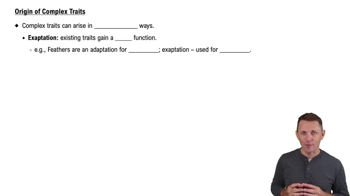Textbook Question
What are three attributes of mitochondria and chloroplasts that suggest they were once free-living bacteria?
1754
views

 Verified step by step guidance
Verified step by step guidance



What are three attributes of mitochondria and chloroplasts that suggest they were once free-living bacteria?
Molecular zip codes direct molecules to particular destinations in the cell. How are these signals read?
a. They bind to receptor proteins.
b. They enter transport vesicles.
c. They bind to motor proteins.
d. They are glycosylated by enzymes.
How does the hydrolysis of ATP result in the movement of a motor protein along a cytoskeletal filament?
Which of the following cell structures would you expect to be most important in the growth of bacteria on the surface of your teeth?
a. Cell wall
b. Fimbriae
c. Flagella
d. Cilia